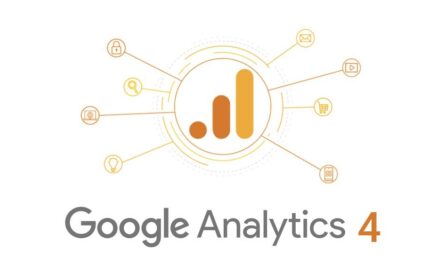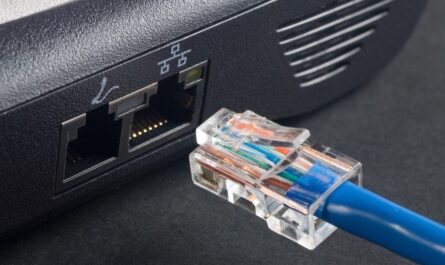This post helps you to understand Blockchain Technology benefits and the various ways in which it can benefit the financial services industry. Different technologies appeared over the past decade with numerous system benefits used by banking and investing industries. One of these is the blockchain technology that is ruling the world with its extensive features. It is a distributed ledger providing services in trailing assets, recording transaction data, etc. Monetary units all around the globe are happy with the transparency and decentralization of the software.
Out of many, banking is considered a central domain of this service solution due to privacy concerns. The question arises, how is this technology serving different banking and monetary sectors? We have a list of its top benefits below to help you comprehend the system in detail.
Page Contents
Seven Benefits of Blockchain Technology
Banking and finance is such a large division, including numerous sub-sectors with different responsibilities. With more functions and many engagements, the system gets more prone to hacking, fraud, or risk management. This blockchain technology is mainly designed to keep the environment more secure, efficient, and reliable. Several blockchain banking solutions, nowadays, are in the market with their extensive benefits, which are:
Lessened Expenses
According to voypost.com, blockchain technology in banking systems can lessen infrastructure expenses by up to 20 billion dollars by the end of 2024. This adequate facility allows employing an innovative contact system within a platform to reduce the counterparties or one-on-one interaction. Moreover, this software help in diminishing the maintenance or executive costs and facilitate bank-to-bank transactions.
Enhanced Security
Maintaining complete security has always been an issue for most banks as considerable dealings are susceptible to attack by competitors. The shared blockchain ledgers provide enhanced protection to banks, especially for transaction data. These are implemented in a way that no one can capture or even divert the transaction details. Furthermore, the two-key authentication feature tops up the protection system, providing public and a private keys. The private key permanently resides between the relevant parties, while the public key is for all users.
Immediate Transactions
You might have come across numerous transaction methods, but still, none could beat the transaction system by blockchain till now! It handles the activity in a matter of seconds, avoiding the interference of intermediaries or brokers. Previously, the banks were at more risk of exposure due to the lack of faster transaction tracks. The presence of blockchain technology eliminated these fears!
Introduction to Digital Currencies
Advanced technology is introducing the world to digital currencies, where the most popular these days is cryptocurrency. This feature is beneficial in letting the world step into digitalization. Banks can now accept these currencies to perform various transactions, leading to faster trading and secured systems. Experts are thinking of announcing this digital currency system as the standard one soon.
Upgraded Data Quality
Banks can now store all data types that can even access the defined rules and regulations by the company through modern blockchain technology. A bank composes of different sub-sectors that are allotted their functions. All these sectors can take advantage of the data information shifted to this shared-ledger technology. You can contact https://diceus.com/ to get the best blockchain solution for your platform.
Compliance
Getting better compliance from these services is another great advantage for banks. Different finance units permit their government officials and auditors to access the blockchain solutions to check its transparency. With the technology, the banks find it easy to detect unusual activities or improper auditing processes. The combination of digitalization and better blockchain yielding makes it easy to run auditing projects.
Reduced Risk of Frauds & Errors
Banks also extracted reduced error advantages from blockchain technology. The system helps employees quickly track errors and solve them within no time. It is an excellent source of reducing risks or frauds even before the transaction is made.
Blockchain and Internet of Things (IoT) Integration
Blockchain and Internet of Things (IoT) integration is a promising field that brings together the strengths of both technologies to create a secure and transparent ecosystem. By combining blockchain’s decentralized and immutable ledger with IoT’s network of interconnected devices, a new paradigm of trust, efficiency, and automation emerges. Through Bitcoin SV Blockchain, IoT devices can securely and autonomously communicate, authenticate, and execute transactions without the need for intermediaries. This integration ensures data integrity, as transactions are recorded in a tamper-proof manner, enhancing the security and reliability of IoT networks. Moreover, blockchain-based smart contracts enable automated and self-executing agreements, enabling seamless transactions and interactions between IoT devices and participants in various sectors such as supply chain, energy management, healthcare, and more. The convergence of blockchain and IoT holds immense potential for revolutionizing industries and driving the development of innovative applications with enhanced transparency and efficiency.
Bottom Line
These are a few out of several benefits this blockchain technology is providing us every day! This system has surpassed the obsolete, traditional banking systems that were more exposed to fraud. As per the technologists’ plan, all the blockchain-dependent solutions should reduce the fraud/risks losses up to $9 billion. So, there is no doubt remaining that this advanced technology is benefiting the financial sector.
See Also:
- Make Learning Easy With Instructional Content Platform Newsela
- 8 Useful apps – Best Learning apps For Everyone
- 14 Cyber Security Tips to Prevent Cyber Attacks
- Schoology: Learning Management System






